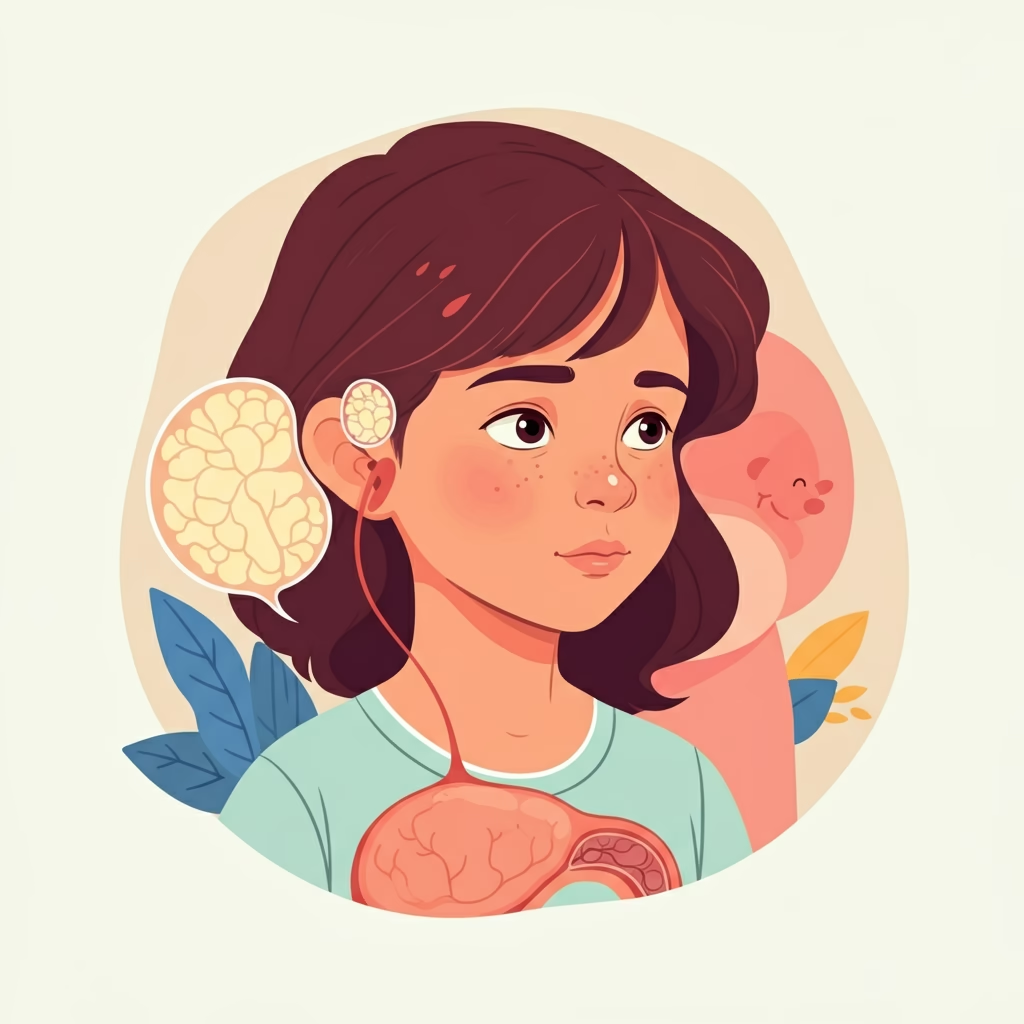When it comes to children’s health, every parent wants to stay ahead of potential issues that may affect their little one’s comfort, growth, and overall well-being. Among the many conditions that can impact kids, Adenoidid —an inflammation of the adenoids—is one that often goes unnoticed until symptoms start interfering with daily life. Understanding this condition, its causes, symptoms, and management strategies is essential for parents who want to support their child’s health in the best possible way.
What Are Adenoids and Why Are They Important?
Adenoids are small masses of lymphatic tissue located high in the throat, behind the nose and roof of the mouth, where the nasal passages connect to the throat. While you can’t see them without special medical equipment, they play a significant role in the immune system during early childhood.
Adenoids help trap harmful bacteria and viruses that enter the body through the nose and mouth. They also produce antibodies to fight infections. However, like tonsils, adenoids can become enlarged or infected—leading to a condition known as Adenoidid.
What Is Adenoidid ?
Adenoidid is the inflammation of the adenoids, typically caused by bacterial or viral infections. It can occur as a single episode (acute Adenoidid ) or as a persistent, recurring problem (chronic adenoiditis).
Types of Adenoidids:
-
Acute Adenoidids: Develops suddenly, often due to a cold, flu, or bacterial infection. Symptoms are usually short-term but can be intense.
-
Chronic Adenoidids: Lasts for weeks or months, often due to repeated infections or persistent inflammation.
Common Causes of Adenoidid in Kids
Children are more susceptible to adenoid problems because their immune systems are still developing. Over time, adenoids naturally shrink and become less active, which is why Adenoididsis rare in teenagers and adults.
The main causes include:
-
Bacterial infections (e.g., Streptococcus pyogenes, Haemophilus influenzae)
-
Viral infections (e.g., adenovirus, rhinovirus, influenza)
-
Allergic reactions that cause nasal and throat inflammation
-
Exposure to irritants such as cigarette smoke, dust, or pollution
Symptoms Parents Should Watch For
Adenoidids can be tricky to spot because its symptoms often resemble those of a cold or sinus infection. However, there are certain signs that can point specifically toward adenoid inflammation.
Common symptoms include:
-
Stuffy or blocked nose
-
Mouth breathing (especially noticeable during sleep)
-
Snoring or noisy breathing
-
Nasal-sounding speech (“talking through the nose”)
-
Persistent runny nose
-
Frequent ear infections or fluid buildup in the ears
-
Difficulty swallowing
-
Sleep disturbances or restless sleep
If your child displays several of these symptoms consistently, it’s worth consulting a pediatrician for evaluation.
How Is Adenoidid Diagnosed?
Doctors use several methods to diagnose Adenoidids:
-
Medical history and symptom review – Understanding frequency, duration, and severity of symptoms.
-
Physical examination – Using a small mirror or endoscope to view the adenoids.
-
Imaging tests – X-rays or nasal endoscopy for detailed assessment.
-
Throat and nasal swabs – To identify bacterial or viral causes.
Potential Complications if Left Untreated
While Adenoidids is not usually life-threatening, ignoring it can lead to ongoing discomfort and secondary health issues such as:
-
Chronic ear infections and hearing problems
-
Speech delays due to hearing loss
-
Obstructive sleep apnea
-
Sinus infections
-
Impaired facial bone growth due to constant mouth breathing
Early treatment not only relieves symptoms but also prevents these long-term complications.
Treatment Options for Adenoidid
The treatment plan depends on the severity and cause of the inflammation.
For mild or acute cases:
-
Rest and hydration
-
Saline nasal sprays or rinses
-
Warm fluids and soft foods
-
Over-the-counter fever reducers or pain relievers (as recommended by a doctor)
For bacterial infections:
-
Antibiotics prescribed by a pediatrician
-
Close monitoring for symptom improvement
For chronic or severe cases:
-
Adenoidectomy (surgical removal of adenoids) may be recommended if the child experiences:
-
Persistent nasal blockage
-
Repeated ear infections
-
Sleep apnea
-
Failure to respond to medical treatment
-
Adenoid removal is a common and generally safe procedure, often performed alongside tonsil removal if both tissues are problematic.
Home Care Tips for Parents
When your child is recovering from Adenoidid —whether managed at home or after surgery—parental care plays a major role in their comfort and recovery.
Here are some supportive measures:
-
Keep the air moist: Use a cool-mist humidifier in your child’s room to reduce throat dryness.
-
Encourage gentle nose blowing: This helps clear nasal passages without excessive pressure.
-
Offer warm drinks: Herbal teas or warm water with honey (for children over 1 year) soothe the throat.
-
Prioritize rest: Ensure your child gets enough sleep to boost their immune system.
-
Promote good oral hygiene: Brushing teeth and rinsing the mouth after meals can prevent bacterial buildup.
Preventing Adenoidid in Kids
Prevention is always better than cure, especially when it comes to conditions that can disrupt sleep, hearing, and breathing.
Practical preventive measures:
-
Teach proper handwashing to reduce the spread of germs.
-
Limit exposure to sick individuals, especially during flu season.
-
Avoid secondhand smoke, which irritates nasal and throat tissues.
-
Encourage a balanced diet rich in vitamins and minerals to strengthen immunity.
-
Keep vaccinations up to date to protect against infections.
Nutrition for Healthy Adenoids and Immune Support
Diet plays an important role in keeping your child’s immune system strong, which indirectly helps prevent adenoid inflammation.
Immune-boosting foods include:
-
Fresh fruits and vegetables (rich in vitamin C and antioxidants)
-
Whole grains (for steady energy and fiber)
-
Lean proteins like chicken, fish, eggs, and legumes
-
Yogurt with live cultures (supports gut health and immunity)
-
Nuts and seeds (contain zinc and healthy fats)
Avoid excessive sugary snacks and processed foods, which can weaken immune function and increase inflammation.
The Role of Sleep in Recovery and Prevention
Sleep is more than just rest—it’s when the body repairs itself and strengthens immune defenses. Children with Adenoidid often experience poor-quality sleep, which can slow recovery.
To promote better sleep:
-
Maintain a consistent bedtime routine
-
Elevate your child’s head slightly to ease breathing
-
Keep the bedroom free from dust and allergens
-
Ensure the room is cool, quiet, and dark
When to Seek Medical Help Immediately
While most cases of Adenoidid improve with home care or basic medical treatment, there are times when urgent attention is necessary.
Seek immediate care if your child has:
-
High fever that doesn’t improve with medication
-
Difficulty breathing or swallowing
-
Persistent ear pain or drainage
-
Severe snoring with pauses in breathing (possible sleep apnea)
-
Sudden hearing loss
Emotional Support for Children with Adenoidid
Chronic illness, even if mild, can be stressful for children. Difficulty breathing, disrupted sleep, and frequent doctor visits can affect their mood and behavior.
Ways to provide emotional comfort:
-
Explain the condition in simple, reassuring language
-
Offer distractions like storybooks, puzzles, or favorite shows during rest
-
Praise them for taking medicine or cooperating with treatments
-
Be patient with mood swings caused by discomfort or fatigue
Life After Adenoidectomy (If Surgery Is Needed)
If your child undergoes adenoid removal, recovery is typically quick—most children return to normal activities within a week. Parents should follow the surgeon’s post-operative instructions carefully, which may include:
-
Soft diet for several days
-
Avoiding strenuous activity
-
Keeping the child hydrated
-
Watching for signs of bleeding or infection
Many parents notice an immediate improvement in their child’s breathing, sleep quality, and overall health after recovery.
Final Thoughts
Adenoidid in kids can be a challenging experience for both the child and their parents, but with the right knowledge and timely intervention, it can be effectively managed. Early recognition of symptoms, preventive measures, and consistent home care are the keys to ensuring your child stays comfortable and healthy.
Remember, adenoids are just one part of the body’s immune defense system. Supporting your child’s overall health through good nutrition, hygiene, sleep, and regular check-ups is the best way to protect them not only from Adenoidid but from many other common childhood illnesses.


